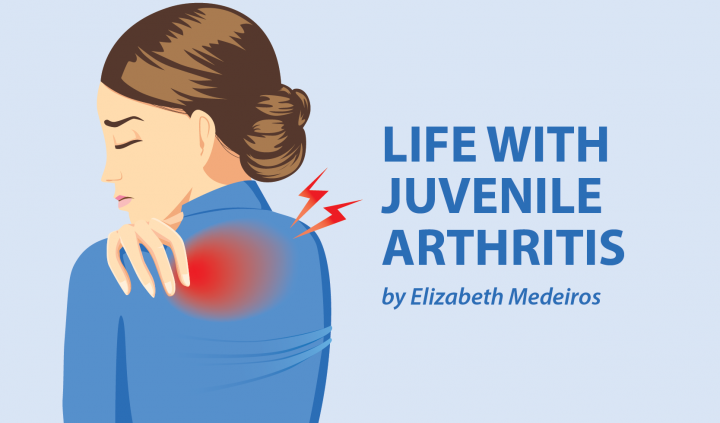People have always considered me to be standoffish. I wasn’t usually keen on giving hugs, and there were some people from whom I kept my distance. In fact, throughout all my years of school, I was the only one in my friend groups who didn’t give or receive daily hugs. But I didn’t keep my distance in an attempt to be cold or mean: It was because hugs could be very painful.
For kids with juvenile arthritis (JA), physical affection can sometimes be painful. Firm handshakes and bone-crushing hugs can aggravate stiff and sore joints. Other conditions, such as juvenile fibromyalgia, may make touch even more unbearable, no matter how gentle.
Politeness
Unfortunately, this can be a touchy topic. So many cultures around the world greet one another with hugs and kisses. It’s considered rude not to reciprocate, and both children and adults often grin and bear the pain of a bone-crushing hug out of politeness. Besides, how do you tell someone with good intentions that they hurt you? Young people may also face the added burden of not being able to give a firm handshake, which may be impossible due to hand pain.
Hide away
Young children with JA may not be upfront about telling you if a touch hurts. They may not have the language skills to let you know, “Ow, that hurt,” and may just push you away or be reluctant to hug you again. It’s easy to dismiss this as “threenager” behavior, rather than a sign that something was painful.
Older kids and teens may be labeled as rude if they don’t want to reciprocate. Or they may be afraid they’ll get in trouble if they don’t. In my experience, teens with JA sometimes “mysteriously” disappear during greetings and goodbyes. On a bad day, it might feel necessary to them.
Gentle embraces
It’s not to say that you shouldn’t hug a child with juvenile arthritis: Kids and teens with JA go through so much, and sometimes they really need a hug. But please be considerate of what they’re going through.
Parents, don’t be afraid to subtly (or not so subtly) bring up that touch can be painful for your child. Remind relatives that “her back has been bothering her,” or “his fingers have been swelling.” And don’t be afraid to be direct if you see someone being rough with your child.
And for loved ones, please be gentle. Don’t grab, squeeze, and shake them. Embrace them, hold them, and let them adjust as necessary. And please don’t comment on how stiff they are, because they may not be able to help it. Just let them do what’s comfortable and they will be comfortable with you.
***
Note: Juvenile Arthritis News is strictly a news and information website about the disease. It does not provide medical advice, diagnosis, or treatment. This content is not intended to be a substitute for professional medical advice, diagnosis, or treatment. Always seek the advice of your physician or other qualified health provider with any questions you may have regarding a medical condition. Never disregard professional medical advice or delay in seeking it because of something you have read on this website. The opinions expressed in this column are not those of Juvenile Arthritis News, or its parent company, BioNews Services, and are intended to spark discussion about issues pertaining to juvenile arthritis.

